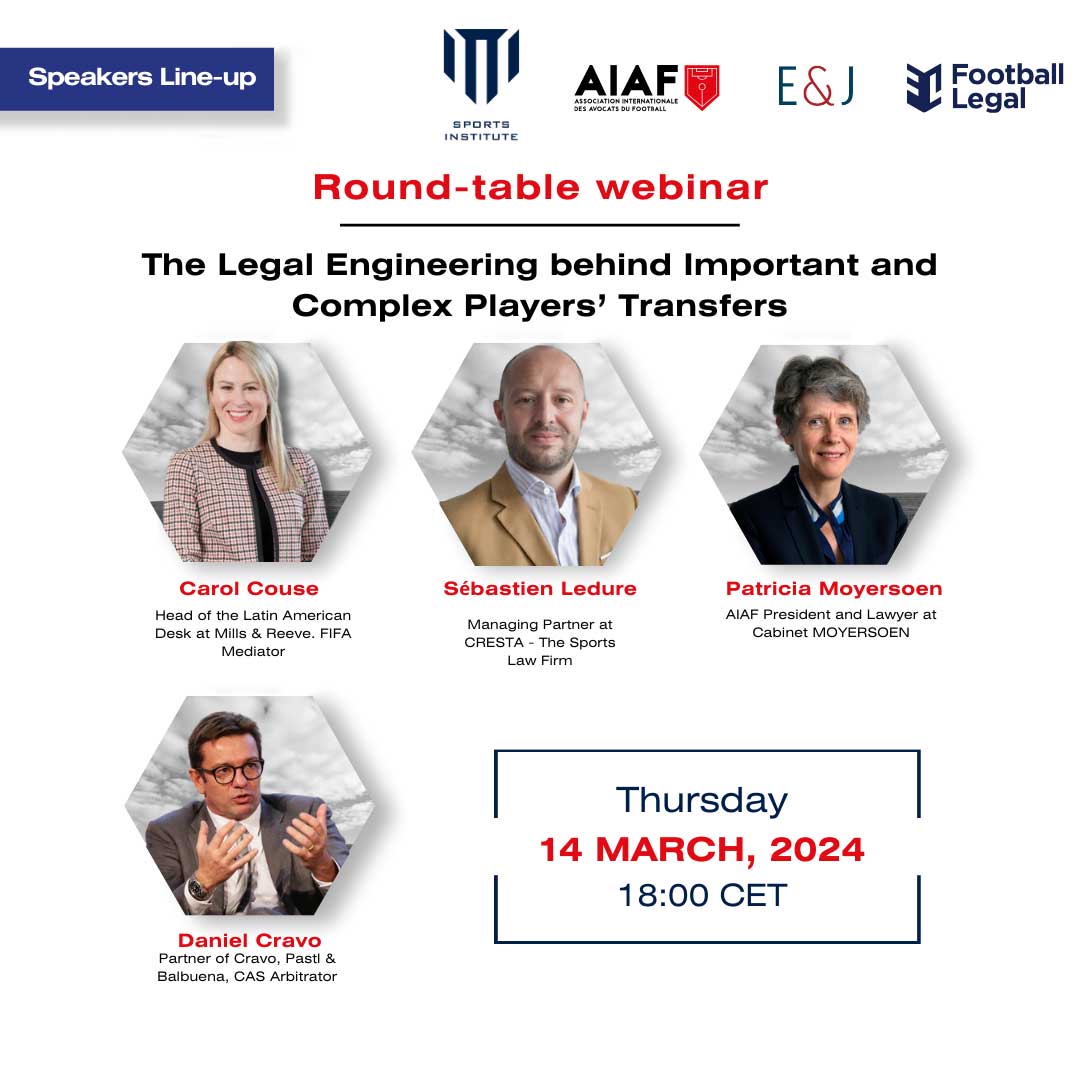
The Legal Engineering behind Important and Complex Players’ Transfers
Professional transfers are regulated by a complex set of regulations established by the sport’s governing bodies. The rules are subject to a large degree of standardization at the international level through international sports institutions such as FIFA for soccer and FIBA for basketball. International standardization is justified by the ambition to universalize competition rules in order to promote international sports exchanges. The broad autonomy granted to sports bodies for the self-regulation of their activities is a fundamental characteristic of sport compared to other economic and social activities. The transfer environment is subject to different layers of rules and regulations. The study aims to document the different layers of rules and consider their interactions. Transfer rules in sport constitute an exception to normal work practices in the following respects:
- They limit the freedom of players to change employers and establish restrictive conditions for such transfers. Contracts may be terminated by either party without consequences (such as sporting sanctions) only if justified by «just cause «
- They established a system of transfer fees between clubs to avoid a total ban on player mobility. The free movement of players is restricted by transfer rules in order to maintain fair and balanced competition.
- Daniel Cravo, Founding partner of Cravo, Pastl y Balbuena Abogados Asociados. Member of the Executive Committee of the International Association of Football Lawyers (AIAF) and of the Editorial Board of Football Legal (Magazine). Arbitrator before the Brazilian Center for Mediation and Arbitration (CBMA). Member of the CAS ad hoc Division for the 2022 FIFA World Cup. Member of the ad hoc panel of the Disciplinary Tribunal for the World Athletics Championships in Oregon – July 2022. Academic Director of the Master in Football Law at ITTI. Speaker at various conferences and courses related to law, arbitration and management in sport -mainly football-, such as FIFA FLAR 2024 (Tokyo), International Congress on Football Law (RFEF), among others.
He provides legal services to clubs, athletes, intermediaries, agents, associations, federations, investors and companies related to sports, with extensive experience in advising and proceedings before Brazilian authorities, as well as in international cases before international sports federations.
- Carol: She advises clients on regulatory and commercial issues in the field of sports, media and entertainment. She has particular expertise in football-related regulatory matters (player transfers, player contracts, immigration requirements and work permits). She also intervenes in dispute resolution forums at national and international level, such as FIFA, UEFA and the Court of Arbitration for Sport (CAS). Carol is an accredited commercial and civil mediator and is a mediator and arbitrator with Sport Resolutions. She understands the benefits of alternative dispute resolution for clients, where the need to resolve matters in a confidential and often timely manner are paramount, preserving relationships wherever possible. He also has experience of handling high profile multi-million pound cases before the ordinary courts, working alongside our expert litigation team.
- Sébastien Ledure: Founder and partner of CRESTA, a Brussels-based law firm specializing in sports law, Sébastien Ledure is pragmatic and value-oriented when dealing with contentious and non-contentious matters related to the sports sector.
He is an experienced negotiator, litigator and contract lawyer.
He is passionate about sport and passionate about soccer, basketball and tennis.
He is a member of the International Association of Football Lawyers (AIAF).
- Patricia Moyersoen: Patricia Moyersoen holds a master’s degree in private international law (University Paris VII), and specializes in copyright law, entertainment law and sports law. In 1988, she founded the law firm MOYERSOEN Avocats, which advises numerous professional soccer and rugby clubs, as well as sports federations, players and agents. She is a member of the Chambre d’arbitrage du sport, under the auspices of the Comité national olympique et sportif français (CNOSF), and a former member of the UEFA Appeals Committee from 2012 to 2016.
Patricia is a member of the Editorial Board of Football Legal. She also teaches master students in sports law at universities (Université Aix-Marseille, Université de Bourgogne).
Finally, Patricia is one of the founders and president of the International Association of Football Lawyers (AIAF). She is also a member of Women in Sports Law.


